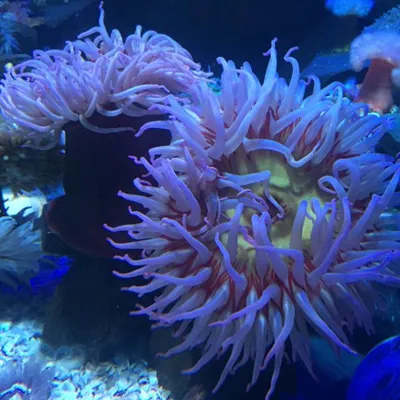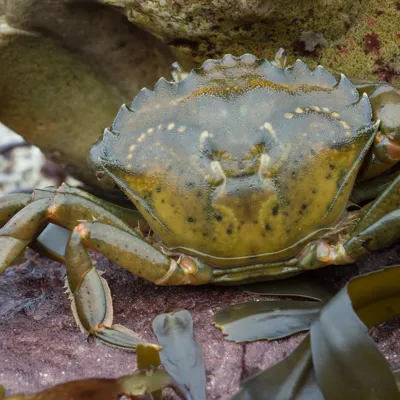- SEA LIFE, Rockpool
The amazing micro-habitats full of incredible creatures!
Rockpools are made from water left behind when the tide goes out. Lots of different creatures live in these shallow pools – they all need to be tough to adapt to different temperatures and waves crashing overhead!
If you're exploring Rockpools at the beach, remember these important rules:
-
Safety first: Make sure you’re with an adult and only explore when the tide is going out. Wear non-slip shoes.
-
Be kind to creatures: Put any rocks back carefully and try not to the disturb creatures you find. Never take them home with you!
Starfish
Starfish are found in every ocean in the world! There are over 2000 known species, each one is full of surprises!
Did you know that a starfish can drop an arm at will if it needs to? If one is grabbed by a hungry predator they will drop it off and make their escape, eventually growing a new arm to replace it.
Starfish have no brain, heart or blood! What they do have is a specialised stomach. They can eject part of it out of their body to digest food much bigger than their mouth, and then suck it all back in to finish digesting it... Gross!


Anemone
Sea Anemones look like colourful, underwater blooms and they got their name from the anemone flower.
If you go to the seaside it's always wise to look but don't touch as other species can give you a nasty sting, such as the beautiful, purple Snakelock Anemone.
Did you know?
- Sea Anemones are in fact animals and are closely related to Jellyfish and Corals. They have no brain heart or blood, but that doesn't stop them from being great predators!

Crabs
- Crabs are crustaceans along with Lobsters and Shrimp. Crabs have eight legs and two claws
- Instead of having a bony skeleton as we do, crustaceans have an external skeleton which protects their body like a suit of armour!
- As Crabs grow, they sometimes get too big for their shell! Can you guess what they do next? They wriggle out of a hatch in the back of it and grow themselves a whole new, bigger shell